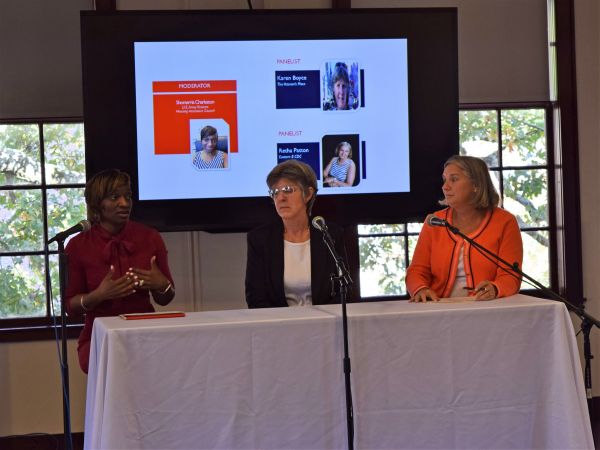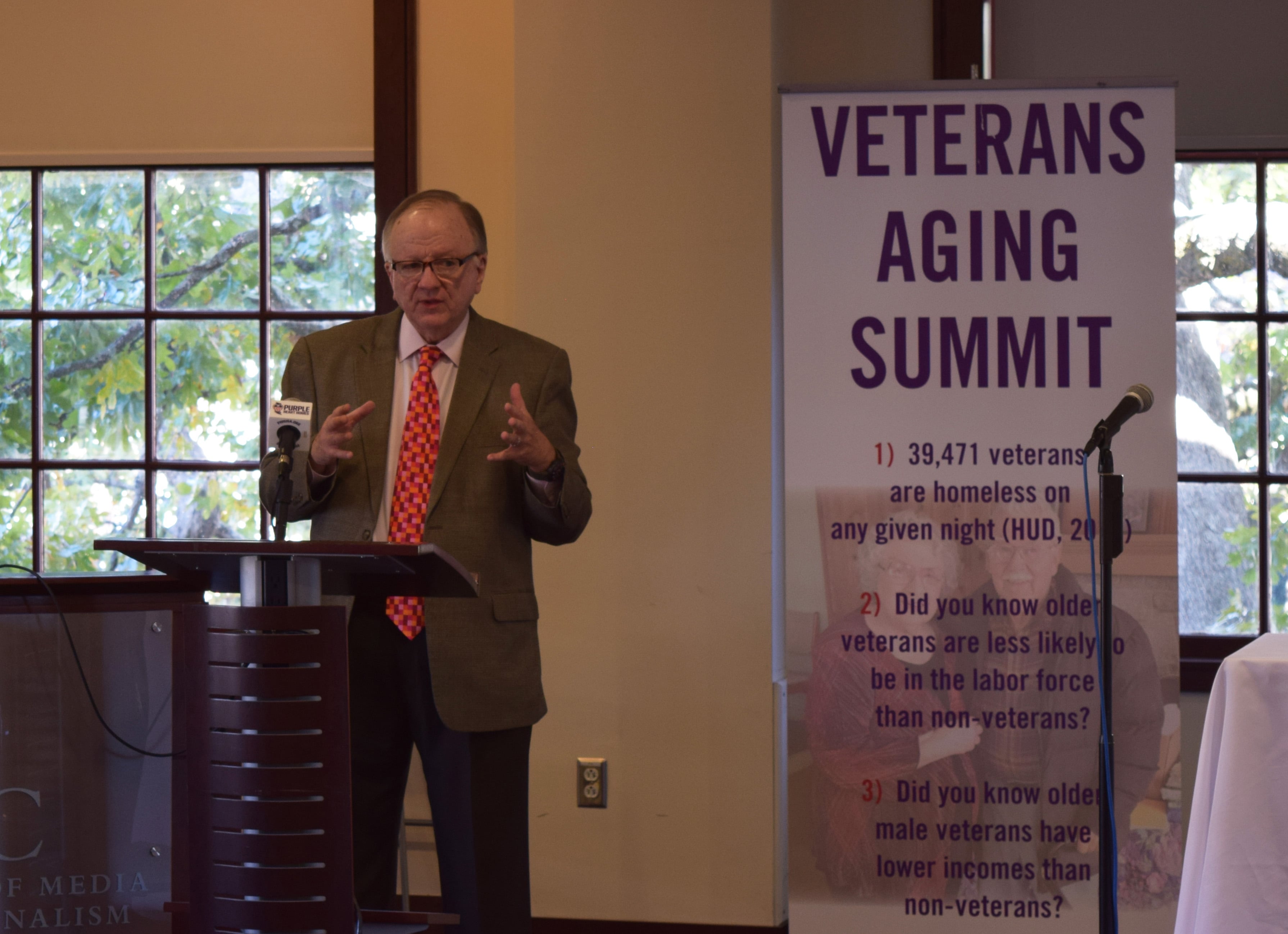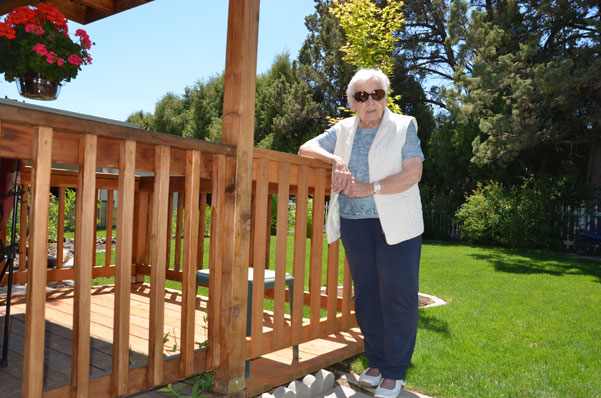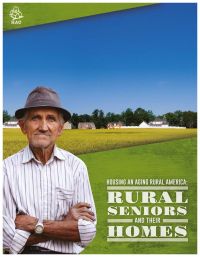Rural Veterans and Local Nonprofits Receive Critical Housing Support
Contact: Dan Stern, dan@ruralhome.org
Shonterria Charleston, ahrv@ruralhome.org
202-842-8600
Rural Veterans and Local Nonprofits Receive Critical Housing Support
Funded by The Home Depot Foundation
Washington, D.C., July 24, 2020 – Veterans and their families in twelve rural communities will have better lives, thanks to The Home Depot Foundation and the Housing Assistance Council. The Foundation is awarding grants totaling over $305,000 to twelve local nonprofit housing agencies around the country to preserve housing for veterans in rural America.
The funds are part of The Home Depot Foundation’s Veteran Housing Grants Program, which wascreated to support the development and repair of housing for veterans. Many of our veterans and their families face major housing challenges, often worsened by issues like unemployment, age and service-related disabilities. The Home Depot Foundation is dedicated to giving back to those who have already given so much for our country.
As part of its Affordable Housing for Rural Veterans (AHRV) Initiative, the Housing Assistance Council (HAC) works with The Foundation to administer grants that bolster and support the work of rural nonprofit housing agencies to deliver critical housing support to veterans. “HAC is honored to continue its partnership with The Home Depot Foundation,” said David Lipsetz, HAC’s CEO. “Together we’ve helped strengthen the capacity of local rural organizations to build and preserve veteran housing units across rural America.” As rural America is home to a disproportionately high number of service women and men; HAC remains deeply committed to supporting our nation’s service women and men by uplifting local nonprofits and their work to house and ensure the safe habitability of their homes and rural communities.
The grantee organizations – described below – provide a range of programs. With the grants, veterans who own homes in Arizona, Louisiana, Maryland, Minnesota, Mississippi, New Mexico, New York, North Carolina, Oregon, South Carolina, Texas and West Virginia will obtain critical repair assistance. Altogether, over 70 veterans and their families will benefit from these grants.
About The Home Depot Foundation
The Home Depot Foundation works to improve the homes and lives of U.S. veterans, train skilled tradespeople to fill the labor gap and support communities impacted by natural disasters. Since 2011, the Foundation has invested more than $335 million in veteran-related causes and improved more than 47,000 veteran homes and facilities in 4,500 cities. In 2018, the Foundation pledged an additional $250 million dollars to veteran causes, taking the total commitment to half a billion by 2025. To learn more about The Home Depot Foundation and see Team Depot in action, visit thd.co/community and follow us on Snapchat, Twitter and Instagram @teamdepot and on Facebook at facebook.com/teamdepot.
About the Grantees
- BDT Housing Services Enterprise, Walls, MS will utilize $30,000 to leverage the rehabilitation of five (5) homeowner units located in the lower Mississippi Delta Region. For additional information on BDT Housing Services Enterprise, visit their GuideStar profile at https://www.guidestar.org/profile/26-3736448.
- Habitat for Humanity of Frederick County, Frederick, MD will utilize $17,409 to complete modifications on two (2) units for elderly veterans in Frederick County, MD. For additional information on Habitat for Humanity of Frederick County, visit their website at www.frederickhabitat.org.
- Habitat for Humanity of Orange County, in Chapel Hill, NC will utilize $30,000 to leverage the rehabilitation of three (3) homeowner units. For additional information on Habitat for Humanity of Orange County, visit their website at https://www.orangehabitat.org/.
- Habitat for Humanity of Smith County, in Tyler TX will leverage $30,000 on the rehabilitation and modification of six (6) homeowner units. For additional information on Habitat for Humanity of Smith County, visit their website at https://smithcountyhabitat.org.
- NeighborWorks UMPQUA, in Roseburg, OR will leverage $30,000 on the rehabilitation and modification of ten (10) homeowner units throughout rural Oregon. For additional information on NeighborWorks UMPQUA, visit their website at https://www.nwumpqua.org/.
- Rebuild Upstate, in Greenville, SC will utilize $30,000 to leverage the rehabilitation and accessibility modifications on four (4) homeowner units in rural South Carolina. For additional information on Rebuild Upstate, visit their website at https://rebuildupstate.org/.
- Rebuilding Together Dutchess County, in Poughkeepsie, NY will utilize $15,000 to leverage the rehabilitation of one (1) elderly homeowner units across rural New York. For additional information on Rebuilding Together Dutchess County, visit their website at https://www.rebuildingtogetherdutchess.org/.
- Rebuilding Together Twin Cities, in Minneapolis, MN will utilize $7,000 to leverage the rehabilitation of two (2) homeowner units in rural Minnesota. For additional information on Rebuilding Together Twin Cities, visit their website at https://rebuildingtogether-twincities.org/.
- Southern Appalachian Labor School, in Kincaid, WV will utilize $25,908 to support the rehabilitation of twenty (20) homeowner units in Appalachia. For additional information on Southern Appalachian Labor School, visit their website at https://sals.info/.
- Southwestern Regional Housing and CDC, in Deming, NM, will utilize $30,000 to support the rehabilitation of ten (10) homeowner units across the Southwest Border Colonias. For additional information on Southwestern Regional Housing and CDC, visit their website at https://swnm.org/.
- St. Mary Community Action Agency, in Franklin, LA, will utilize $30,000 to support the rehabilitation of six (6) homeowner units in the lower Mississippi Delta. For additional information on St. Mary Community Action Agency, visit their website at https://www.stmarycaa.org/index.htm.
- White Mountain Apache Housing Authority, in Whiteriver, AZ, will utilize $30,000 to support the rehabilitation of three (3) homeowner units on the Fort Apache Reservation. For additional information on White Mountain Apache Housing Authority, visit their website at https://www.wmahousingauthority.org/default.asp?sec_id=180007661.
###




